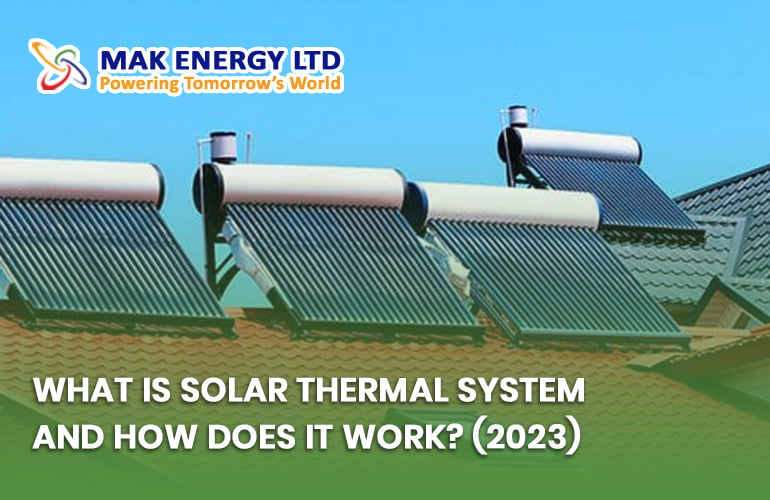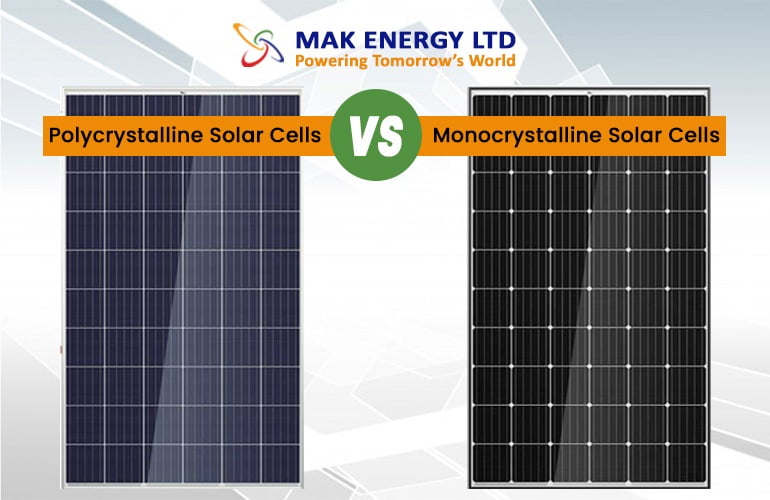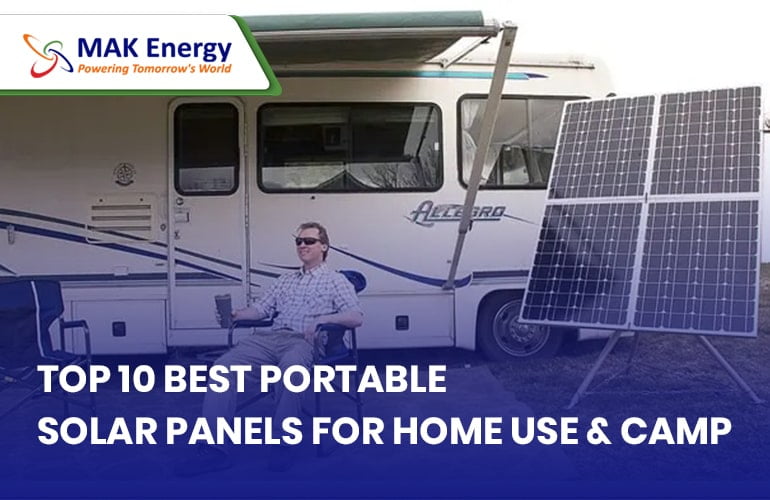Last updated: January 11th, 2024 at 07:31 am
Solar thermal technology is commonly used to heat water for homes, swimming pools, or business spaces. It can also be utilized to heat the air in a given space. This concept has witnessed rapid growth in recent years due to its clean and affordable source of energy, available year-round. In the UK, where temperatures are often low, the adoption of solar thermal technology for water and space heating has become popular.
- What is Solar Thermal System?
- Benefits of Solar Thermal Systems
- How Do Solar Thermal systems Work?
- What Are the Different Types of Solar Thermal System?
- Active Solar Thermal System
- Passive Solar Thermal System
- Is Solar Thermal Worth It?
- How Many Solar Thermal Panels Do I Need?
- How Much Hot Water Can Solar Thermal Heater Provide?
- How Much Can You Save With Solar Thermal System?
- Is Your Property Suitable for a Solar Thermal System?
- How Can I Find the Best Solar Thermal Panel Installer in UK?
- Summary
In this blog, we will cover essential aspects of solar thermal, including its definition, working principles, and the required number of solar thermal panels. Our aim is to provide you with a comprehensive understanding of solar thermal technology.
What is Solar Thermal System?
Solar thermal is a renewable energy technology that captures the sun’s energy to generate heat for various purposes, including water heating, air space heating, and swimming pool heating systems. They can be used for both domestic and commercial heating needs. It provides sustainable and environmentally friendly heating solutions. It’s important to distinguish solar panels from solar thermal panels, as they are two distinct products.
Solar thermal panels, unlike solar panels, consist of solar collectors designed to generate and transfer heat energy to water by circulating it through the collectors. Solar thermal systems offer an affordable, clean, and efficient method for heating water and air spaces.
Benefits of Solar Thermal Systems
Solar thermal panels are gaining popularity due to their wide range of benefits, similar to solar panels. Installing a solar thermal system at your home or business offers several advantages. Here are some of the benefits you can enjoy.
- Solar thermal panels typically come with a 10-year warranty but can last more than 25 years
- Solar thermal panels require minimal maintenance and repairs
- They operate efficiently even in cold weather conditions
- Solar thermal panels offer a cost-effective solution for water and air heating, with a short payback period
- By utilizing solar thermal panels, you can save hundreds of kilograms of carbon dioxide emissions every year
How Do Solar Thermal systems Work?
A Solar Thermal system works by capturing the power of the sun and converting it into heat to warm water and spaces. It all starts with solar collectors, which are typically made of metal or plastic. These collectors capture the sun’s energy and absorb its heat. The heat is then transferred to a special fluid, which can be water, antifreeze, or oil. This fluid circulates through a network of pipes and carries the heat to a storage tank. In this tank, the water or air is heated and can be used for various purposes, like providing hot water for your home or heating up your living space.

What Are the Different Types of Solar Thermal System?
There are two main types of solar thermal system, which are generally known as Active solar thermal system and passive solar thermal system. Let’s discuss them one by one.
Active Solar Thermal System
Active Solar thermal system uses the mechanical devices such as heat pump, storage tank to transfer the fluid from solar collectors, which is typically water, antifreeze or oil. Most of the solar thermal user use active solar thermal system.
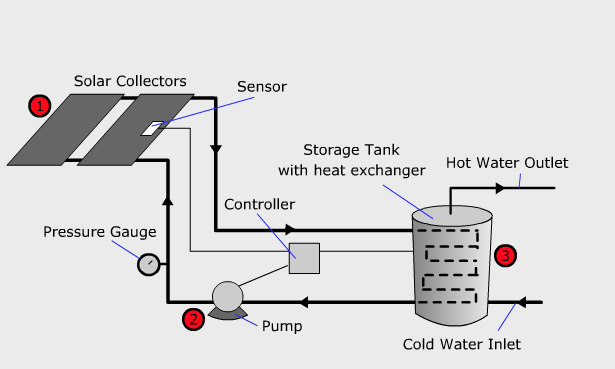
Passive Solar Thermal System
Unlike active solar thermal systems, passive solar thermal systems do not rely on mechanical devices like heat pumps or storage tanks. Instead, they harness the power of natural resources to transfer heat from the solar collectors. Passive systems make clever use of building design and insulation to retain the heat. They utilize materials such as dark-colored roofs or walls that can absorb and retain the sun’s warmth.
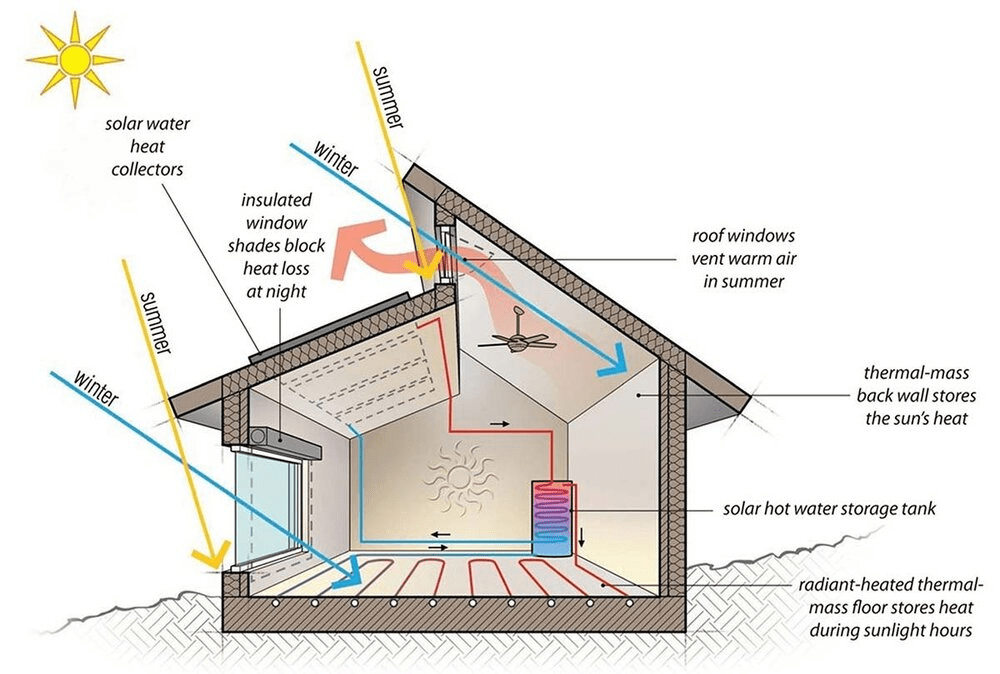
Is Solar Thermal Worth It?
Yes! A solar thermal system is definitely worth considering for your home. While the initial installation cost can be quite expensive, ranging between £4,000-5,000, the long-term benefits are substantial. A solar thermal system can supply you enough hot water throughout the year, resulting in a remarkable 70% reduction in heating expenses. By switching to a solar thermal system, you not only benefit financially but also contribute positively to the environment. Additionally, you can save hundreds of pounds annually on your energy bills.
How Many Solar Thermal Panels Do I Need?
The number of solar panels needed depends on factors like hot water demand, available roof space, and panel size. Typically, a standard-sized solar thermal panel measures 2-3 square meters. In the UK, a typical house requires 1-3 solar thermal panels for water heating. As a rule of thumb, allocate 1 square meter of solar thermal collector per person in your home. Sunlight availability also affects the panel count: more sun, fewer panels; less sun, more panels.
How Much Hot Water Can Solar Thermal Heater Provide?
On average, a solar thermal system can provide up to 60% of your hot water heating needs throughout the year. During the summer, it can meet up to 90% of your warm water requirements. However, the specific amount of hot water produced varies depending on the time of year.
How Much Can You Save With Solar Thermal System?
Switching to renewable energy sources is always a beneficial approach that provides a multitude of advantages over the years. However, financial benefits are often the most appealing. By installing a solar thermal heating system, you can save hundreds of pounds annually, although the exact savings depend on your previous heating system. According to the Energy Saving Trust, the following savings can be achieved annually, depending on your existing boiler system.
| Fuel bill savings (£/year) | Existing boiler system | Carbon dioxide savings (kg CO2/year) |
| £95 | Gas | 275 kg |
| £150 | Oil | 380 kg |
| £105 | Coal | 660 kg |
| £125 | Electricity | 170 kg |
| £200 | Liquefied petroleum gas (LPG) | 305 kg |
Is Your Property Suitable for a Solar Thermal System?
Solar thermal panels are ideally suited for homes where they can be installed on a property with a south-facing roof. However, even if this is not possible, solar thermal panels can still provide sufficient heat. If you have ample roof space and a high annual water heat consumption, a solar thermal heating system is well-suited for you. It is worth noting that homeowners living in listed or conservation areas may face restrictions on installing solar thermal systems due to regulations limiting changes to these buildings.
How Can I Find the Best Solar Thermal Panel Installer in UK?
The installation of solar thermal panels requires professionally trained and skilled individuals with expertise in the UK’s solar thermal panel system installation. Before choosing a solar installer in the UK, ensure that the company is MCS-Certified, well-reputed, and has successfully completed numerous solar thermal panel installation projects. Additionally, it’s important to choose an installer who can answer your basic question: What is solar thermal??
Here at MAK Energy, we meet all the necessary requirements of a reliable solar installer. We are MCS-Certified and have a team of professional installers with over 12 years of experience installing solar thermal systems in various cities across the UK. Give MAK Energy a try, and rest assured that you will have hot water throughout the year without any issues.
Summary
The answer to the question ‘What is solar thermal and how does it work?’ is as straightforward as the question itself. Solar thermal systems are renewable technology used to heat water and air spaces by capturing the sun’s energy through solar thermal panels, also known as solar collectors. It offers numerous benefits to homes and businesses as a cost-effective and clean method of obtaining hot water. While installation costs can be significant, the system has a short payback period.
If you’re considering installing a solar thermal panel system to meet your hot water needs, you may be unsure about choosing the best solar thermal installer in the UK. Contact MAK Energy today, and we’ll provide the solution to all your hot water-related concerns, from answering your initial question about what is solar thermal to completing the installation process.

